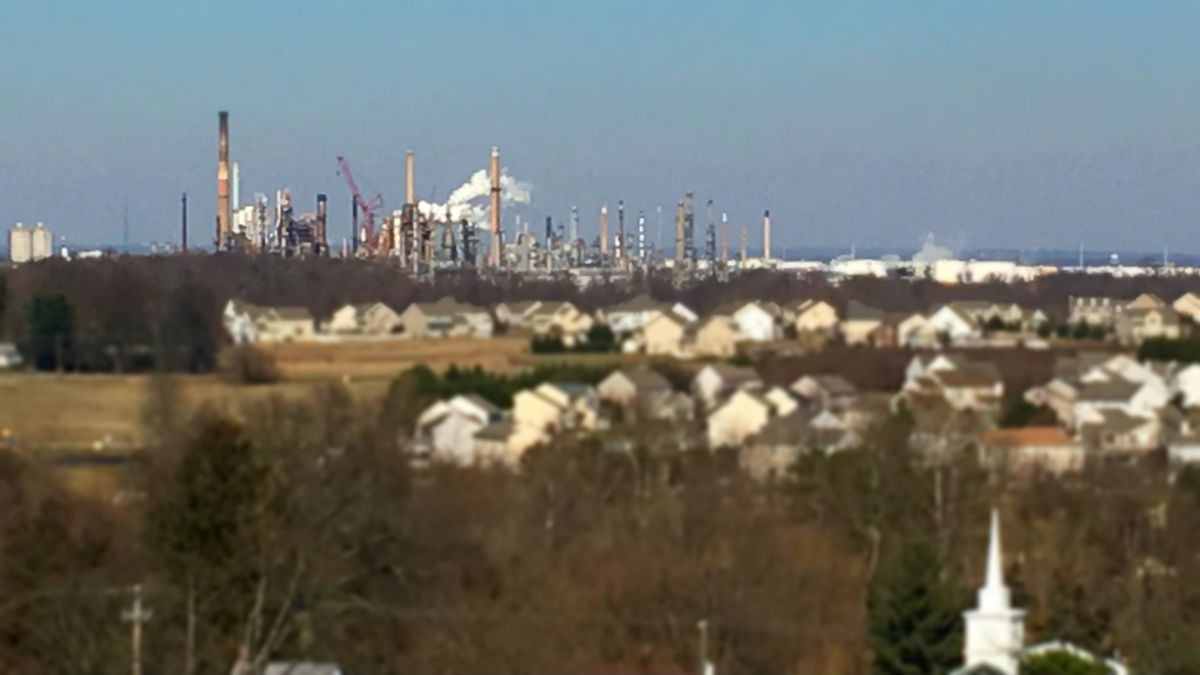CSB issues recommendations following investigation into 2015 Delaware City Refinery fire [video]

(File/WHYY)
The U.S. Chemical Safety Board has issued a list of safety recommendations following an investigation into a 2015 flash fire at a Delaware refinery that injured a worker.
In November 2015, workers at the Delaware City Refinery changed their maintenance preparation activities due to a leaking valve. But they didn’t take the time to identify additional hazards or a safety strategy as they changed their existing maintenance plan, according to the CSB.
That evening, shortly after opening the drain valve to the sewer system, the night shift operator heard a pop and saw a wall of fire advancing toward him. He suffered second-degree burns to his face and neck and third-degree burns to his wrist. The worker has recovered and returned to work, a refinery spokesperson said Thursday.
“This incident could have been prevented had DCRC conducted a hazard analysis,” said Johnnie Banks, Supervisory Investigator for CSB.
Incidents like these aren’t too uncommon, however. In fact, more than 40 percent of cases the CSB has investigated are for non-routine maintenance preparation—leading to 86 fatalities and 410 injuries nationwide.
“For us, that’s a significant number of casualties associated with this type of event, and it drove our decision to deploy to this incident,” Banks said.
The CSB is an independent, non-regulatory federal agency that investigates serious chemical incidents, and offers recommendations for prevention. The Board does not issue citations or fines, but does make safety recommendations.
“Our focus is not to blame or shame,” said Vanessa Allen Sutherland, a CSB chairperson. “We want to highlight the lessons learned and share those broadly, not just with the company we’re investigating, but throughout the industry, so others engaged in similar practices can implement procedures and prevent this kind of incident.”
The CSB has issued five “key lessons” from the Delaware City incident to educate the industry in general on best practices to mitigate hazards.
“Maintenance preparation introduces a certain level of risk, and when procedures are improvised you increase that risk,” Sutherland said.
“When you are engaged in a maintenance preparation act, if the conditions change or a new risk is introduced, you need to identify that hazard, mitigate the risk and alter your plan so you don’t have an accident or incident that can injure the workers that are implementing those changes.”
Since the incident, the refinery has developed procedures to ensure hazards are mitigated prior to performing maintenance preparation activities. The new procedures require authorization from management and other departments before performing the work.
Banks said the refinery was cooperative, and proactive in developing procedures that address non-routine activities.
Refinery spokesperson Michael Karlovich said the facility has worked cooperatively with United Steelworkers Local 4-898 and CSB to investigate, understand and learn from the incident.
“As a result of the investigations, the refinery revised certain operating procedures associated with equipment maintenance to address the unusual circumstances that led to the incident,” he said. “We openly shared details of the actions taken by the refinery with CSB representatives and our workforce, and are distributing the CSB’s ‘Safety Bulletin’ to our employees, to further reinforce our continuing commitment to safety, reliability and regulatory compliance.”
WHYY is your source for fact-based, in-depth journalism and information. As a nonprofit organization, we rely on financial support from readers like you. Please give today.





